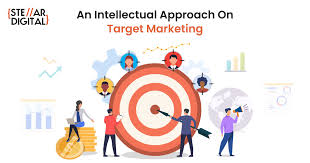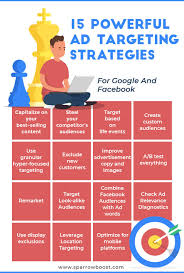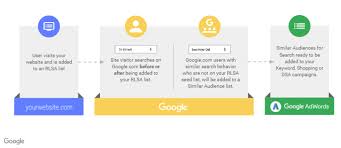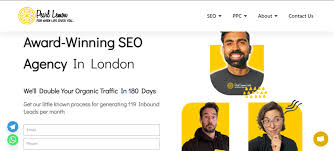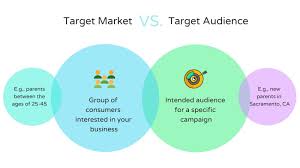Unlocking Success: Understanding Your Marketing Agency’s Target Audience
The Importance of Identifying Your Target Audience for Your Marketing Agency
As a marketing agency, one of the key factors that can determine the success of your campaigns is understanding your target audience. Your target audience comprises the group of individuals who are most likely to be interested in your products or services and are potential customers for your clients.
Identifying and defining your target audience is crucial for creating effective marketing strategies that resonate with the right people. By understanding their needs, preferences, behaviours, and demographics, you can tailor your messaging and tactics to engage them effectively.
Key Benefits of Knowing Your Target Audience:
- Improved Campaign Relevance: When you know who your target audience is, you can create content and messages that are relevant to their interests and needs, increasing the chances of capturing their attention.
- Higher Conversion Rates: By targeting the right people with personalised messages, you can drive higher conversion rates as your audience is more likely to respond positively to your marketing efforts.
- Better ROI: Understanding your target audience helps you allocate resources more efficiently by focusing on channels and strategies that are most effective in reaching and engaging them.
- Stronger Brand Loyalty: By delivering targeted messages that resonate with your audience, you can build stronger relationships with customers and increase brand loyalty over time.
How to Identify Your Target Audience:
To define your target audience effectively, consider conducting market research to gather insights into consumer behaviour, preferences, and demographics. You can also analyse data from past campaigns to identify patterns and trends among your most responsive customers.
Create buyer personas that represent different segments of your target audience based on factors such as age, gender, location, interests, challenges, and buying habits. This will help you visualise and understand the diverse groups within your target market.
In Conclusion
Understanding your target audience is essential for the success of any marketing agency. By knowing who you are trying to reach and tailoring your strategies accordingly, you can create more impactful campaigns that drive results for both your agency and clients.
7 Essential Tips for Understanding and Engaging Your Target Audience in Marketing
- Conduct thorough market research to understand your target audience’s demographics, interests, and behaviours.
- Create detailed buyer personas representing different segments of your target audience.
- Tailor your marketing messages to resonate with the specific needs and preferences of your target audience.
- Utilise data analytics to track consumer behaviour and measure the effectiveness of your marketing campaigns.
- Engage with your target audience on multiple online platforms where they are most active.
- Collect feedback from your existing customers to continuously refine and improve your targeting strategies.
- Stay updated on industry trends and changes in consumer preferences to adapt your marketing approaches accordingly.
Conduct thorough market research to understand your target audience’s demographics, interests, and behaviours.
To effectively reach and engage your target audience, it is crucial for a marketing agency to conduct thorough market research. By delving into your audience’s demographics, interests, and behaviours, you can gain valuable insights that inform your marketing strategies. Understanding who your audience is, what they care about, and how they behave allows you to tailor your messaging and tactics in a way that resonates with them effectively. This in-depth understanding paves the way for creating campaigns that are not only relevant but also impactful in capturing the attention and interest of your target audience.
Create detailed buyer personas representing different segments of your target audience.
To enhance the effectiveness of your marketing campaigns, it is essential to create detailed buyer personas that accurately represent various segments of your target audience. By developing comprehensive profiles that encompass factors such as demographics, interests, challenges, and purchasing behaviours, you can gain valuable insights into the diverse groups within your target market. These buyer personas serve as invaluable tools for tailoring your messaging and strategies to resonate with specific audience segments, ultimately leading to more targeted and impactful marketing efforts.
Tailor your marketing messages to resonate with the specific needs and preferences of your target audience.
To maximise the effectiveness of your marketing campaigns, it is crucial to tailor your messages to align with the unique needs and preferences of your target audience. By understanding what resonates with them, you can create content that speaks directly to their interests and challenges, increasing the likelihood of capturing their attention and driving engagement. Personalised messaging that addresses the specific concerns and desires of your audience not only enhances the relevance of your campaigns but also fosters stronger connections with potential customers, ultimately leading to improved campaign performance and customer loyalty.
Utilise data analytics to track consumer behaviour and measure the effectiveness of your marketing campaigns.
Utilising data analytics to track consumer behaviour and measure the effectiveness of your marketing campaigns is a crucial tip for any marketing agency. By analysing data such as website traffic, social media engagement, email open rates, and conversion metrics, you can gain valuable insights into how your target audience is interacting with your content and campaigns. This data-driven approach allows you to make informed decisions, refine your strategies, and optimise your marketing efforts to better resonate with your audience and drive successful outcomes for your clients.
Engage with your target audience on multiple online platforms where they are most active.
To effectively reach and connect with your target audience, it is essential for a marketing agency to engage with them on multiple online platforms where they are most active. By establishing a presence across various digital channels such as social media, websites, forums, and email newsletters, you can increase visibility and engagement with your audience. This multi-platform approach allows you to meet your audience where they already spend their time online, enabling you to deliver tailored messages and content that resonate with them and drive meaningful interactions.
Collect feedback from your existing customers to continuously refine and improve your targeting strategies.
To enhance the effectiveness of your targeting strategies, it is advisable for a marketing agency to gather feedback from its existing customers. By soliciting input from those who have already engaged with your products or services, you can gain valuable insights into their preferences, behaviours, and perceptions. This feedback can help you refine your targeting approaches, tailor your messaging more effectively, and improve the overall customer experience. Continuously listening to and learning from your existing customers allows you to adapt and evolve your strategies in line with their needs, ultimately leading to more successful marketing campaigns and stronger customer relationships.
Stay updated on industry trends and changes in consumer preferences to adapt your marketing approaches accordingly.
Staying updated on industry trends and changes in consumer preferences is crucial for a marketing agency to remain competitive and effective in reaching its target audience. By keeping a finger on the pulse of the latest developments, you can adapt your marketing approaches proactively to meet the evolving needs and expectations of consumers. This ongoing awareness allows you to stay ahead of the curve, identify new opportunities, and fine-tune your strategies to resonate with your target audience effectively.





